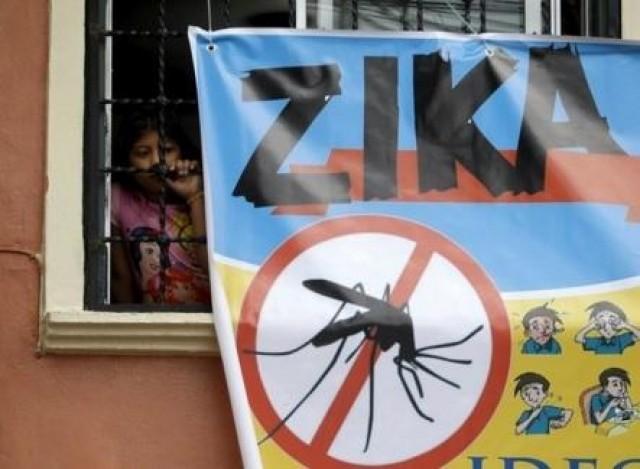Zika spreads to Miami Beach in Florida,U.S

Federal health
officials on Friday warned pregnant women not to travel to trendy Miami Beach
after Florida confirmed that the mosquito-borne Zika virus was active in the
popular tourist destination.
The U.S. Centers for
Disease Control and Prevention also suggested that pregnant women who are
especially worried about exposure to Zika - which has been shown to cause the
severe birth defect known as microcephaly - might consider avoiding all of
Miami-Dade County.
The new warnings
represent a challenge to Florida’s multibillion dollar tourism industry, with
Miami Beach accounting for nearly half of visitor stays in the Greater Miami
area. They also heighten concerns over Zika’s spread in the continental United
States.
In a press
conference, Florida Governor Rick Scott said state health officials had
identified five cases of Zika believed to be contracted in Miami Beach.
“This means we
believe we have a new area where local transmissions are occurring in Miami
Beach,” he said, noting that the state had already stepped up pesticide
spraying efforts in this area.
The new transmissions
come as Miami-Dade continues to battle Zika in the Wynwood arts neighborhood of
Miami, the site of the first locally transmitted cases of Zika in the
continental United States. For a graphic of Florida’s Zika outbreak, click
here.
In Miami Beach, the
state believes Zika transmission is confined to a 1.5-square-mile area located
between 8th and 28th streets in the popular South Beach neighbourhood. For a
graphic of map, click here.
Miami Beach resident
Steve Ehrlich, 30, said news of the five cases transmitted somewhere in the
blocks around his home was not surprising, but that did not make it any less
concerning.
“You knew it was
going to intermingle all over the place,” he said.
And though Ehrlich
said and he and his wife Caroline did not have any immediate plans to have more
children, any thought of doing so has been indefinitely shelved.
Current CDC
guidelines recommend men wait six months after being infected with Zika before
trying to have children to avoid passing the virus to a pregnant partner
through semen. The recommendations are based on observations that the virus can
live in semen as long as 93 days after an infection, but a recent report in the
journal Eurosurveillence described two cases in which the virus lingered in
semen six months after a person
was infected.
“The CDC is giving
recommendations for how long to wait before you get pregnant, but it seems like
no one has a clear grasp on just how long it stays in your system,” Ehrlich
said. “That’s scary for us because we eventually want to have more kids.”
Travel expert Henry
Harteveldt, founder of travel consultancy Atmosphere Research Group, said the
Zika outbreak in South Florida could jeopardize travel in the area.
“Even if 1 percent or
2 percent of potential travelers decide not to go to Florida, whether it’s for
leisure or for business, there could be a multi-million dollar hit to the local
economy,” he said.
In a conference call
with reporters on Friday, CDC Director Dr. Tom Frieden said there have been at
least four other independent instances of mosquito-borne Zika transmission in
Miami-Dade county. These were individual cases and did not represent local
transmission.
Frieden said it is
difficult to determine if cases are locally acquired and whether cases are
related. As a result, there may be a time lag in reporting the spread of
disease locally.
Given that, Frieden
said there could be transmissions that have not been identified throughout
Miami, which is why the CDC has advised pregnant women and their sexual
partners who are worried about potential exposure to consider avoiding travel
to Miami entirely.
Of the five new cases
in Miami Beach, one person is a resident of New York, one person is a resident
of Texas and one person is a resident of Taiwan.“All three of these people
travelled to Miami,” Scott said.
Frieden said battling
Zika-carrying mosquitoes in this neighbourhood will be especially challenging
because the area’s high rise buildings will prevent pilots from flying low
enough to drop pesticides in aerial spraying campaigns.
“The inability to use
aerial spraying there means we’ll be limited to using ground-based techniques
like backpack spraying,” he said.
Frieden said aerial
spraying continues to be successful in the Wynwood neighbourhood, where experts
have seen “substantial but not complete knockdowns of mosquito populations.
Scott said Florida
has requested more support from the CDC.
AIMIM News
Latest Urdu News
Most Viewed
Can Lionel Messi's visit boost Indian football?





































.jpg)
.jpg)
.jpg)


